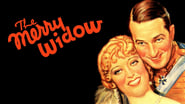TheLittleSongbird
I absolutely adore the operetta and this 1934 film is a real pleasure. It is not quite as good as the operetta, which is my favourite operetta of all time alongside Der Fledermaus, but there are so many things to love. The film looks splendid. I personally love the fashions, while the photography is stylish and the sets beautiful. The performances are first rate, Maurice Chevalier is charming and naughty and Jeanette MacDonald is a revelation. The story is told with style and polish, and the script is witty and acerbic. Two things especially made this film work. One is Lehar's music, which is absolutely magnificent, the overture and the music in the waltz scene show a master at work as does the beautiful Vilja. The other is Ernst Lubitsch's brilliant direction, this film has a rather risqué directorial approach that you see in every scene and this worked. Overall, this film is pleasure and if you love classic film or operetta or both(that's where I fit) I recommend you see The Merry Widow. 10/10 Bethany Cox
Cyke
114: The Merry Widow (1934) - released 10/11/1934, viewed 9/3/08.DOUG: Criterion just released a Lubitsch box set featuring his sound musicals prior to Trouble In Paradise. Awesome. Now we need one with his work following Paradise, including this lavish piece. Lubitsch favorites Maurice Chavalier and Jeanette MacDonald appear in their last film together; once again she plays a lonely aristocrat, and once again he plays an officer intent on wooing her. This one, however, spares no expense on the costumes, sets, and extras. The always-reliable Edward Everett Horton is also around to pull his weight in a supporting role. For all its loveliness, Lubitsch is in danger of becoming routine, but I don't want that to sound bad; Lubitsch was one of Hollywood's most prolific and most reliable imports at this time, and this is a solid example to be sure. Like all of Lubitsch's best work, this is filled with crackling innuendo and great chemistry, along with lots of fun little moments sprinkled throughout. Overall, though the elements are familiar, everyone is at the top of their game. Definitely recommended, if you can get your hands on it.KEVIN: After powering through all of Ernst Lubitsch's pre-Code essentials, his latest foray feels kinda routine. In a good way though, not unlike going to your favorite restaurant and ordering your favorite dish that you always order, and getting it served just the way you like it. Chevalier plays another playboy in uniform, and MacDonald, with more big, frilly dresses than ever, is another lovelorn upper-class socialite (here the titular obscenely wealthy widow), and the fate of a cash-strapped kingdom depends on their hooking up. Considering that the plot hinges on their union, the film seems to spend copious amounts of time building up to their meeting. Lubitsch regular George Barbier is memorable as the king, but supporting players Edward Everett Horton and Una Merkel are here and gone far too quickly. As enjoyable as this classic is, I can't help wondering if I would appreciate this movie more if I hadn't seen so much of it before.Last film: Cleopatra (1934). Next film: The Gay Divorcée (1934).
MartinHafer
Jeanette MacDonald,...now that's a star who ONLY would have become famous during one particular cinematic era. By today's standards, her singing is excruciating to listen to despite her being a pretty good actress. Her operatic-type style is, to put it bluntly, horrid--as she hits notes high enough to curdle milk and make babies cry. If you haven't guessed, I'm not one of her biggest fans.However, apart from Jeanette's horrid singing, I loved the film. Maurice Chevalier makes it so worth watching with his enchanting performance--sort of like a middle-aged version of the same lusty but sweet guy he played in GIGI. Plus, I actually liked his singing--it didn't make my ears bleed.As for the movie itself, much of its charm is owed to director Lubitsch. He truly had a magical touch when it came to romances and light comedy. This is particularly true in the last 5 minutes of the film--pure Lubitsch magic and about the best 5 minutes you'll ever see on film.So my final verdict--hit the fast-forward button when Ms. MacDonald sings and you'll love this picture.
didi-5
MGM's second version of 'The Merry Widow', this time using the music of Lehar's operetta and starring Jeanette MacDonald and Maurice Chevalier in the roles previously filled by Mae Murray and John Gilbert in the silent movie.Jeanette MacDonald is a revelation here if you've only seen her in the films which teamed her with Nelson Eddy from 1935 and 1942. Her Sonia is sparky, flirty, and naughty, and naturally in beautiful voice as ever. Maurice Chevalier brings his considerable Gallic charm to the role of Count Danillo, while familiar character faces of the period flesh out the supporting cast (Edward Everett Horton, Donald Meek, Una Merkel, Sterling Holloway).The film looks sumptuous, with beautiful sets and striking black and white photography. Definitely one of the key musicals of the 1930s.



